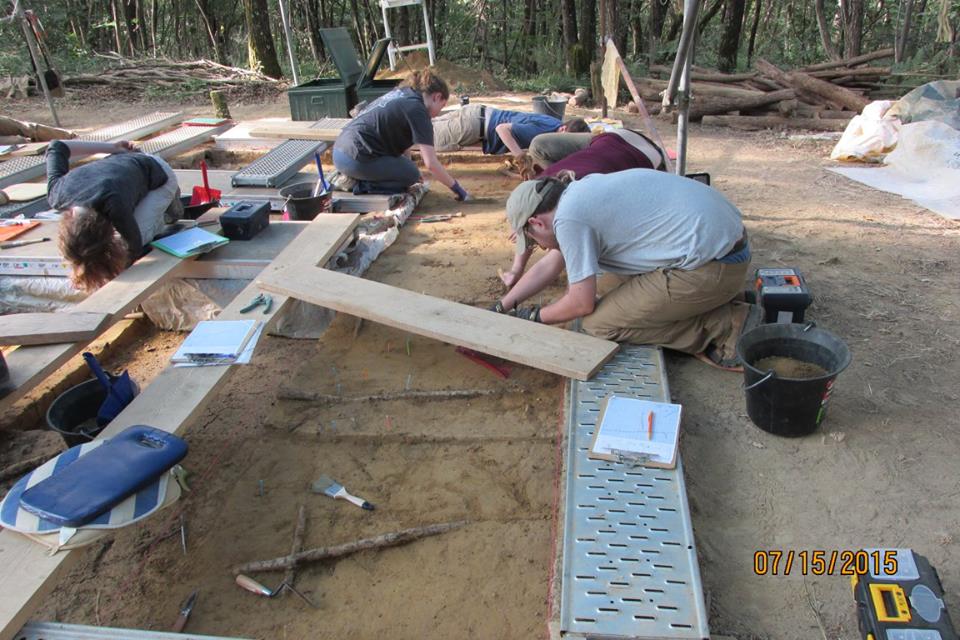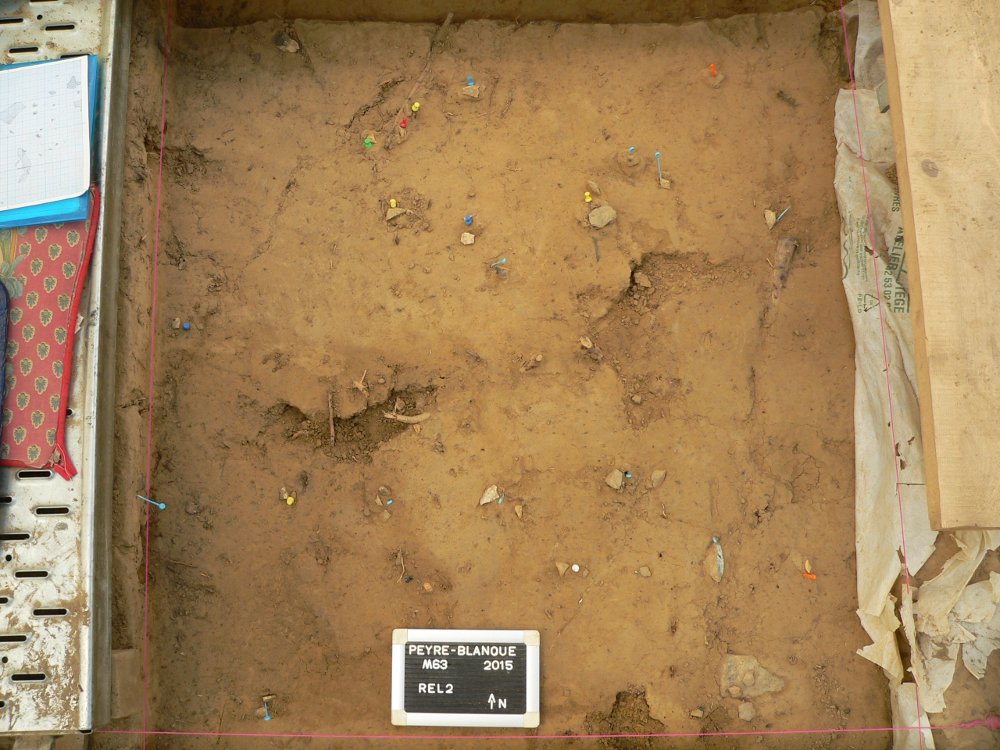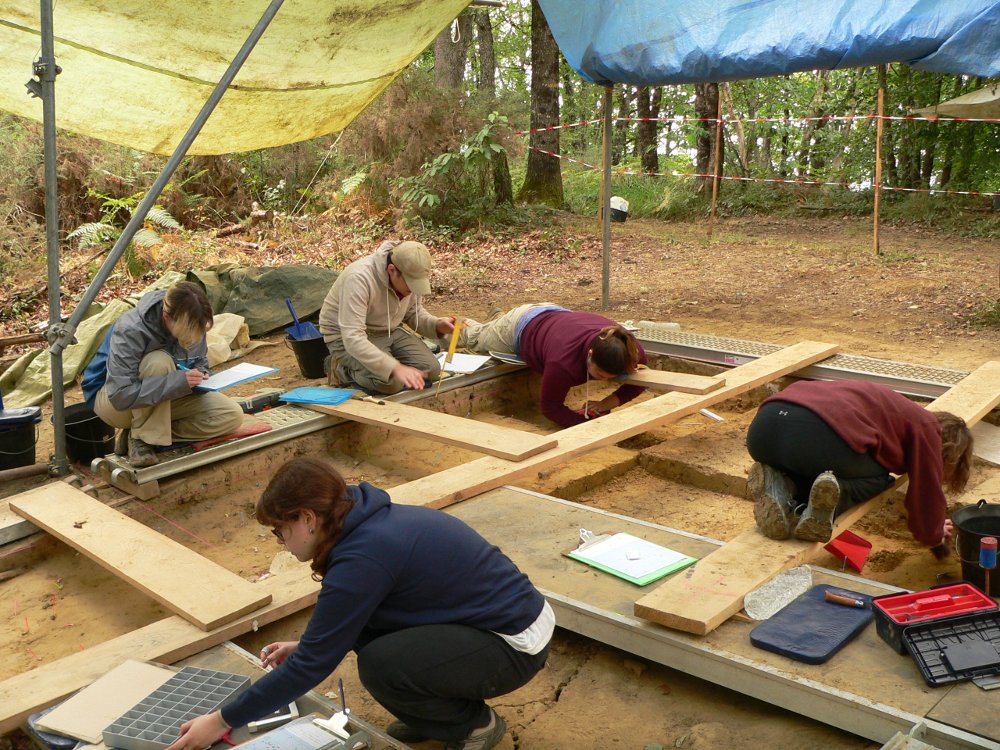(By Shelley Reece)
“What am I doing here?”
This question, once voiced, gave everybody in Row 63 of the Western Sector a moment’s pause.
Heads that had been bent in diligent archaeological silence raised tentatively, and glances were exchanged.
There was no doubt that we were all asking ourselves this question, and inexplicably, we all began to giggle.
Amid the laughter, the questioner continued.
“I mean it! What am I doing with my life? It’s July! My friends are on the beach. I chose to be here. What on earth is wrong with me?”
We laughed; the person who asked the question laughed.
It was not a serious question - it was meant only to alleviate the tension that had accumulated in response to days spent staring at the same metre-by-metre square, lying precariously on planks in the merciless July summer, scraping at the earth until our hands ached.
In Row 63, the question thereafter became an immediate tension diffuser.
We would only have to look at our neighbors and whisper, “What am I doing with my life??” to evoke an immediate grin and sympathetic laughter.
But this had been a serious question that I was asking myself long before I came to Peyre Blanque. What am I doing with my life? Why archaeology?
I could have been a doctor. I could have been a physicist. I could have saved lives, or changed the world. But I had chosen archaeology, and my choice troubled me.
It seemed selfish, and I could not help but struggle with my decision to devote my life to something that seemed so arbitrary and meaningless.
And yet from day one, I began to sense that my trip to Peyre Blanque was going to change the way I understood archaeology forever.
As soon as I got off the plane in France, I was greeted by Patrice and Seb – and Seb almost immediately launched a conversation with me about why anthropology and archaeology could not be separated.
“Archaeology is not about rocks and stones,” he said. “It’s about people.”
It made sense, but all I had seen of the project thus far was the soil samples in the Berkeley lab, and field notes and photographs collected from years of surveying – and that all seemed pretty rock-centric to me.
But when I started to work on the site itself, Seb’s assertion began to make sense to me.
It was my first excavation, and I hadn’t known what to expect – but apparently I had not expected to be visited by the locals while I worked!
Being an open-air site meant that our activity was noticeable, and day after day, people from the local village would stop by to see what we were up to.
Every single one of them received the five-star Peyre Blanque hospitality – the undivided attention of our director, a tour of the site, a thorough explanation of what we were doing there, and an invitation to stay!
“They are welcome because it is their history,” Seb explained to me. “And this is what archaeology is about – letting people see where they come from, so that they know who they are".
"The first thing an invading country will do, is wipe out the history of the land they have conquered, because a people without history cannot survive. In archaeology, we give people history; we give them a better idea of who they are.”
I had never understood why I liked archaeology, but after this explanation, it began to make sense.
I had always been keenly aware of the gaps in my own history – my mother was adopted, and my father grew up in an orphanage. I had never known where I came from, and in the past I had participated in the Genome Project in order to see my DNA at least, and gain some understanding of who I was.
Still, it was not until the second or third week on the project that all of these pieces fell into place for me.
I was sifting through the soil I had dug up, searching for tiny pieces of chert within the earth, when I saw an old lady approach and hover a little, as if she wasn’t sure where to go or who to approach.
“Salut!” I said, feeling shy, but wanting to be friendly.
“Salut!” she said in return, and came over to where I was working.
My shyness threatened to become full-on panic. I hadn’t spoken French since I left high school, and while I seemed to understand well enough, I was struggling to find the confidence to string a sentence together. But our guests did not seem to speak a lot of English – so if I was going to be friendly, I had to overcome my fear of sounding like a moron.
“Je suis cherche pour les petites pieces du silex,” I said, aware that I was probably making a hundred grammatical mistakes. “Voulez vous chercher aussi?”
To my surprise, she did.
Her weathered hands ran over the dirt alongside mine, and I listened as she told me about herself – how she lived at a farm nearby, and came up every year to see the site when it re-opened. It really had meaning for her, I realized, listening to her speak. This land was her home, and the history of it mattered to her.
After some time, she was ready to continue on. I thanked her for her help; the real reason I wished to thank her remained locked inside me, incommunicable due to the linguistic gulf between us.
I wanted to thank her for showing me why archaeology was not a selfish thing; for showing me that it really was possible to give people their history and past, and that it could have meaning for them when they saw it.
If I had truly wondered at any point, “What am I doing here?” then she provided me with the answer.
I was there for her, and for people like her, who look to Peyre Blanque as a facet in their own understanding of who they are, and where they have come from.
That is what archaeology is - and that is what I am doing with my life.
Shelley Reece is a grad school student at University of California at Berkeley.





Well done Shelley! x
ReplyDelete